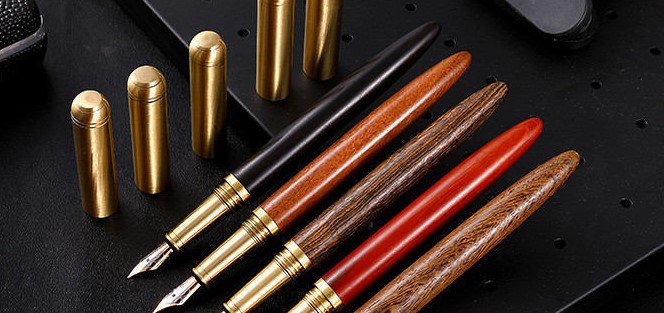
How to Make Your Fountain Pen Last a Lifetime - The Ultimate Guide

Fountain pens are often seen as a luxurious item, but the truth is that they can actually last a lifetime of use with their durability - provided you take proper care of them! In this blog, we'll be discussing the various ways you can make your fountain pen last a lifetime, and help you get the most from ink plastic cartridges. From choosing the right pen to ink, to taking good care of your pen when not in use, we'll cover it all. So if you're ready to make your fountain pen writing experience truly unique, read on!
History of the Fountain Pen | How to Make Your Fountain Pen Last a Lifetime - The Ultimate Guide
History is full of amazing stories, and the story of the fountain pen is no exception.
Fountain pens used to be constructed out of quills and inkwells bound to a wooden handle. Over time, the pen's ink became more luxurious and better than the ink of other pens. The pen became more popular and prestigious because of its superior writing abilities. Nicholas-Jacques Conte created the modern fountain pen in 1795. A fountain pen's ink is forced through a metal or plastic nib after being combined with water. For centuries, fountain pens have been popular writing equipment for authors and typists all over the globe. Whether beginners or fountain pen enthusiasts, this guide will teach everything that is needed to know about these amazing pens!
A fountain pen is a beautiful writing instrument that can be used for a variety of purposes. From journaling to letter writing, a fountain pen is a great choice for any occasion. In order to last for a long time, a fountain pen, like any other writing instrument, must be treated with care. Here are the five main parts of a fountain pen and how to keep them clean and in good condition: the body, the nib, the clip, the converter, and the ink cartridge. To keep your fountain pen functioning smoothly, make sure to keep each part clean by rinsing it in water after use and drying it off with a paper towel completely before storage. Finally, don't forget to fill your fountain pen's ink cartridge regularly and keep the converter clean.
Clip - attaches your pen to a belt, pocket, or another place on you
Clipping a fountain pen to your clothing is an essential part of keeping it securely attached. There are a few different types of clips available, so you can find one that's comfortable and fits your lifestyle. Always make sure the pen is completely dry before attaching the clip so that the ink doesn't get on it and it lasts longer. Make sure to attach the clip correctly so that the pen doesn't get clogged up and ruined. Additionally, choose a sturdy clip that won't break easily.
Nib - the part that writes
Fountain Pen Nibs are the part that writes. Keeping your nib section clean and free from rusting is essential to ensure it writes smoothly. In addition, a fountain pen nib is the most important part - it dictates how well the pen writes. There are three main types of nibs - fine, medium, and broad - each with its own pros and cons. Whatever your choice, gold nibs are the absolute best and most reliable option as they last a lifetime. Extra gold nibs can be purchased separately if required.
Pencil Section or Barrel - stores your pen's extra parts (e.g., erasers).
To avoid clogging up your pen, keep the pencil section or barrel clean. To keep the pen and paper from becoming clogged with ink, it needs to be cleaned on a regular basis. When the ink starts to wear down on the pen's nib, it needs to be replaced. This is done by attaching a clip to the pen so that it can stay in place while you write.
Feed - holds ink and feeds it to the nib
The feed is a crucial part of a fountain pen, responsible for holding the ink and feeding it to the nib. To allow the ink to flow freely, it should be kept clean and free of clogs. If your feed becomes damaged, it will cause problems with your fountain pen's ability to write smoothly and accurately. There are three common types of feeds - ballpoint pens use a cartridge/converter type feed which needs to be replaced occasionally; piston-filler pens use a spring-loaded type feed which can get clogged over time; while fountain pens use either a cartridge or converter fed system where the feed unit itself rarely needs attention. In most cases, simply cleaning and re-gluing the feed in place will fix any issues.
Fine-Tuning Your Fountain Pen for Best Results | How to Make Your Fountain Pen Last a Lifetime - The Ultimate Guide
Fountain pens are a beloved writing instrument and for a good reason. Other forms of pens cannot match the smooth, flowing writing experience they provide. However, like any other piece of equipment, Fountain Pens can be delicate and need some special care in order to last a lifetime. Keep the cap on your pen at all times, and take care when filling it up with ink. Apply a small amount of oil to the nib before writing so that the pen doesn't skip or break. Finally, test out different inks until you find one that works well with your pen and paper. Here is a simple way to keep your pen in good condition: by using it.
Advantages of Using a Fountain Pen | How to Make Your Fountain Pen Last a Lifetime - The Ultimate Guide

The fountain pen hobby has become common in today's society. Writing with a fountain pen is a unique and pleasurable experience that can't be beaten. Fountain pens are great for writing because they offer a smooth and flowing line that is difficult to imitate with other writing instruments. Fountain pens use water as the ink supply, which makes them environmentally friendly and sustainable. Additionally, fountain pens use a variety of inks that provide a variety of colors and tones, making them a favorite among writers. If you take good care of your fountain pen, it will last for years and years! So go ahead and treat yourself to a new fountain pen - you won't regret it!
Stylish Addition to Any Wardrobe
Fountain pens are a stylish and elegant way to write. They come in a range of shapes, sizes, colors, and nibs - making them perfect for any wardrobe. Stainless steel materials, for example, are soft and malleable and are used to make a stainless steel nib. Fountain pens collect the ink near the tip, rather than spreading it all over the page, making them easier to write with even if you're not the most handwriting-savvy individual. As a result - you'll need to use less ink and won't have to spend as much time refilling your pen!
Fun for any Occasion
There's just something about a fountain pen that makes writing feel more special. Fountain pens are amazing tools that can be used for a variety of purposes. They are great for communicating with others and can be used for all sorts of mundane tasks. Plus, if you don't write often then a fountain pen can still be very useful for communicating your feelings and connecting with others.
Significantly More Elegant than Pens with Ink
Fountain pens are undeniably more elegant than pens with ink. Not only do they look better, but their inks are less likely to smudge or fade. Additionally, Fountain pens write with a finer point which makes them more legible and aesthetically pleasing. They also make great for taking handwritten notes and records - fountain pens don't wear out as quickly as ballpoint pens
Troubleshooting Tips if Your Fountain Pen Isn't Working Properly | How to Make Your Fountain Pen Last a Lifetime - The Ultimate Guide
Treat a fountain pen like a luxury item. That's why it's important to know how to make your fountain pen work properly. If it isn't, there are a few things to check first. Before loading any ink, make sure the pen is empty, the nib is properly aligned, and it's clean. If those solutions don't work, try cleaning the pen with a soft cloth and some clean water - let it dry completely before using it again. If all of these steps fail, it's time to take your pen in for repair or replacement - it's worth it! Fountain pens are a lifetime investment, so make sure you're taking good care of them by following these troubleshooting tips.
Unique Writing Experience with Fountain Pens | How to Make Your Fountain Pen Last a Lifetime - The Ultimate Guide
Fountain pens are a favorite writing instrument for a good reason - they offer a unique writing experience that is hard to find with other types of pens. Whether you're a beginner or a fountain pen enthusiast, these tips will help you get the most out of your pen. First and foremost, buy fountain pens from reputable dealers who know what they're doing.
Cheap imitations can damage your pen, and may even cause it to leak ink. The price range of fountain pens is between $5.00 and $200.00 depending on the type, hardware, and nib size that you want to buy in a different level of quality, type, and hardware. They offer a wide range of styles and colors that will fit any personality. Take care of your pen by following these five tips: regularly fill it with ink, use a nib that is the right size, avoid extremes of temperature and much pressure, never use a foreign object to clean the pen, and store it in a cool, dry place. Keep your pen clean by using a pen ink converter and a soft cloth. Be sure to debate risks when making any decision. It's important to regularly clean your pen.
Tips for Maintaining Fountain Pen Health | How to Make Your Fountain Pen Last a Lifetime - The Ultimate Guide

No matter how much you love writing with a fountain pen, it's important to take good care of it. By following these simple tips, you can keep your fountain pen in great condition for years to come! Don't run it through too many sheets of paper at once - this will quickly wear down the pen's barrel. Instead, try to use it for a few minutes at a time, and then switch to a new sheet of paper. Additionally, make sure to clean it regularly using mild soap and water. And last but not least, avoid leaving your pen sitting in water - this can lead to corrosion on the nib. Now go ahead and start writing with a pen that feels good in your hand and looks beautiful on paper!
Get to know your pen
Fountain pens are a great way to express yourself through writing. However, they should only be used with ink and shouldn't be filled up with anything else. If your pen starts giving you problems, don't wait - take it in for repair as soon as possible! A fountain pen is designed to last long if cared for properly. Avoid using oil or lotion on the nib - this will only make things worse. You should also store your pen in a dry and dark place to keep it in good condition.
Keep nib and feed clean
Fountain pens are a luxury item and as such, they should be treated with care. Always avoid writing on rough surfaces - this can damage the pen barrel. Keep the nib and feed clean to ensure good ink flow. If your fountain pen starts giving trouble in any way, take it in for servicing right away! Fountain pens are a lifetime investment and deserve to be kept in good condition for as long as possible.
Rinse and dry your pen regularly
It's important to keep your pen clean and responsive - otherwise, you run the risk of it not working properly. Make sure to rinse and dry it after each use - even if that just means a quick note. And be especially careful not to store your pen in humid environments, as this will cause damage over time. Avoid leaving pens lying around where other people might touch or grab them, either!
How Fountain Pens Save the Planet | How to Make Your Fountain Pen Last a Lifetime - The Ultimate Guide
Fountain pens have a long and illustrious history, and for a good reason - they're environmentally friendly! By following a few simple tips, you can make your fountain pen last a lifetime. In fact, it might even be worth the investment! Fountain pens are made from recycled materials, so you're helping out the environment in a big way. Additionally, they're easy to care for - all you need is a tiny bit of water every few days to keep them working properly. In addition to being environmentally friendly, fountain pens also write cleaner than ballpoint pens. So, not only are you getting a more durable pen that will last longer, but you're also saving time and energy in your day-to-day life.
Producing less waste
One of the easiest ways to reduce waste is by using fountain pen ink in write-in books instead of ballpoint pens. This way, you're not wasting any paper and you're helping conserve resources. Fountain pens are also made from metal and plastic - two materials that can easily be recycled. By taking care of your fountain pen, you'll help it last longer and produce less waste in the long run.
Combating deforestation
Deforestation is a serious problem that threatens the planet as a whole. Every year, millions of acres of forest are lost to deforestation - an act that not only destroys natural habitats but also contributes significantly to climate change. One way you can help rectify this issue is by using a ballpoint pen instead of fountain pens. Due to its lower ink costs and recycling options for ballpoint pens, not only does this reduce your impact on the environment, but it's also cheaper in the long run. Moreover, buying a fountain pen made from recycled materials reduces even further your carbon footprint - making it one of the most efficient ways you can combat deforestation!
Reducing ink consumption
There are a lot of reasons to love fountain pens - they use less ink than other writing instruments, help protect wildlife habitats, and can even be refilled with bottled ink. But the best reason of all might just be that you get more out of your pen in terms of words per cartridge! So if you're looking for an Earth-friendly way to take notes or write essays then a fountain pen is definitely the way to go.
How to Maintain a Fountain Pen | How to Make Your Fountain Pen Last a Lifetime - The Ultimate Guide

Fountain pens are a beloved writing instrument for a good reason - they're extremely versatile and can be used for a variety of writing tasks. However, like any other writing instrument, fountain pens need to be properly maintained to ensure long-term use. Avoid using soap or harsh chemicals when cleaning your pen - this can damage the pen over time. Instead, use mild soap and a water-based cleaning solution.
Make sure to clean the pen regularly - every two weeks is a good rule of thumb - to prevent writing errors. If you experience problems with your pen, do not attempt to fix them yourself - consult a professional! Be sure to take the pen apart and clean all the parts once a week to keep it running smoothly. If your fountain pen starts to show signs of normal wear, it's time for a service call at an authorized retailer. Enjoy your fountain pen for years to come!
Keep your pen clean
Keeping your pen clean is important not only for the aesthetic value but also to keep it running smoothly. A fountain pen needs regular cleaning in order to function properly - just follow the instructions provided and you'll be good to go. Make sure you dry it off completely before storing it away; water will damage the inside components of a pen, including the nib.
Avoid over-filling your pen
Fountain pens are a beloved writing instrument among many people. However, like any other tool, they can be misused and over-used if not taken care of properly. To keep your fountain pen in good condition and prevent it from leaking or damaging, make sure to clean it regularly - especially if you notice ink residue on the nib or feed. Additionally, avoid filling up your pen more than halfway as this will reduce its lifespan significantly. In case of damage or loss, don't despair - there are replacement pens available on the market that fit all types of fountain pens. And lastly, always use a converter when using a fountain pen with an ink cartridge as this will stop potential messes caused by leakage
Get the right ink
There are a few things you need to keep in mind when it comes to getting the best writing experience with fountain pens. First and foremost, always use ink of the same color family as your paper - this will help avoid any confusion or unintended blending of colors. Secondly, make sure not to overfill your pen - this can lead to problems such as dried-out nibs and clogged feeders. Lastly, be sure to clean your pen regularly using warm water and mild soap – bad handwriting is often caused by dirty pens! If there are any problems with your pen, however (or if you just want it serviced), take it to a specialist for proper maintenance.
Store your pen properly
It is important to take care of your pen, as it can be a valuable tool in the office. To avoid any damage, always keep it clean and dry. In addition, use a quality ink cartridge that will last long. And don't over-tighten the cap - this might cause damage to the pen nib or converter.
Avoid Over-tightening the Filler Band
Keeping your fountain pen in good condition is key to a long writing experience. Over-tightening the filler band can cause damage to the pen, ink cartridge, and even lead! That's why it is important to lubricate the nib with a quality fountain pen oil every few months - this will help keep your pen running smoothly for years to come. To ensure that your fountain pen writes smoothly and consistently with regard to ink levels, make sure you get a proper fit for your filler band.
Feed It Properly
A fountain pen is a beautiful, yet delicate instrument. It's important to take care of it by following the manufacturer's instructions and cleaning it regularly with a quality fountain pen cleaning solution or soap and water. Don't store it in humid conditions - this will damage the ink sacs inside the pen. Finally, only use high-quality ink in a fountain pen - non-dyes, liquids, ballpoint pens etcetera won't work!
Avoid dryness and corrosion
Fountain pens are a beautiful addition to any writer's arsenal, but like any other equipment, they need care and attention to function at their best. Failing to heed even a few simple guidelines can lead to dryness or corrosion of your nibs (the part of the pen that writes). To avoid these problems, make sure your pen never sits in a humid environment - this will cause corrosion. If you do experience trouble with your pen, don't hesitate to bring it in for professional repairs! And remember: keeping it clean is key for its long-term success. Make sure you fill it up with ink every time you use it and store it away from moisture and heat. Do not also scratch, damage, or bend your fountain pen because it may make the nib unable to write as expected or scratchiness would result.
Use a converter if needed
It is always a good idea to use a converter if your fountain pen needs to be refilled more than once a month. Converters make the process of refilling much easier and can save you a lot of money in the long run. Fountain pens must also be cleaned and replenished with ink every few months, which entails removing any excess ink that collects inside the pen barrel or nibs. Avoid using harsh chemicals or abrasives as these will damage the pen over time.
Frequently Asked Questions | How to Make Your Fountain Pen Last a Lifetime - The Ultimate Guide
What is the best way to store my fountain pen between uses?
Keeping your fountain pen in a dry and dark place is essential for keeping it in good condition. Avoid exposing it to sunlight or humidity as this can cause the ink inside to evaporate quickly. An airtight container will also protect your pen from environmental damage and fluctuations in temperature.
How can I make sure that my fountain pen doesn't get clogged up?
If you're experiencing clogging with your fountain pen, it's important to clear out any debris or ink that may be obstructing the flow of ink. You can do this by using a qtip to clean off the nib easily, or by using a fountain pen cleaning kit. You should also make sure to store your pens in a dry and dark place, away from heat and moisture. This will help to avoid clogging in the first place.
Can water damage a fountain pen if it's left uncapped?
Yes, water can damage a fountain pen if it's left uncapped. Not only will water seep in and cause corrosion and oxidation of the ink inside the barrel, but it can also cause the pen to run dry and even break. To prevent any damage to your pens, always make sure to cap them whenever you're not using them. This way, you'll be able to avoid any water from seeping in and damaging the ink chambers over time.
Is it possible to restore a damaged or lost ink cartridge in a fountain pen?
There is a chance that a damaged or lost ink cartridge in a fountain pen can be restored, but it will require some patience and expertise. To do this, you will first need to determine if the cartridge uses standard international ink cartridges, or if it uses Latte Ink. If the cartridge uses standard international ink cartridges, then you can refill it with compatible inks. However, if the cartridge uses Latte Ink, then it will not work with any other inks and would need to be replaced completely.
What are some of the most common mistakes people make when it comes to caring for their fountain pens?
There are a few common mistakes that people make when it comes to taking care of their fountain pens. Not cleaning them properly will result in dried ink, clogged nibs, and poor writing performance. In addition, not lubricating them often can also cause these problems. And lastly, not keeping your pen stored correctly can also lead to problems. How do I care for my fountain pen?
To care for your fountain pen, you'll need to clear the tip of any ink buildup with a tip wet with some mild detergent, and then store it in a cool dry place. In addition, proper care will help your fountain pen last a lifetime. To clean your pen, gently remove the cap and hold it under running water - do not use any soap as this can damage the nib. Finally, make sure to store your fountain pen in a cool, dark place to protect it from sunlight.
Conclusion
Fountain pens are one of the most loved writing instruments around and for good reason! They're simple to use, easy to clean, and they look great when you write with them. However, fountain pens don't last forever - in fact, most of them only last for around 3 to 5 years. That's why it's so important to take care of your pen and follow the tips listed in this blog post. By doing these simple things, you can make your fountain pen last a lifetime and enjoy writing with it for years to come!

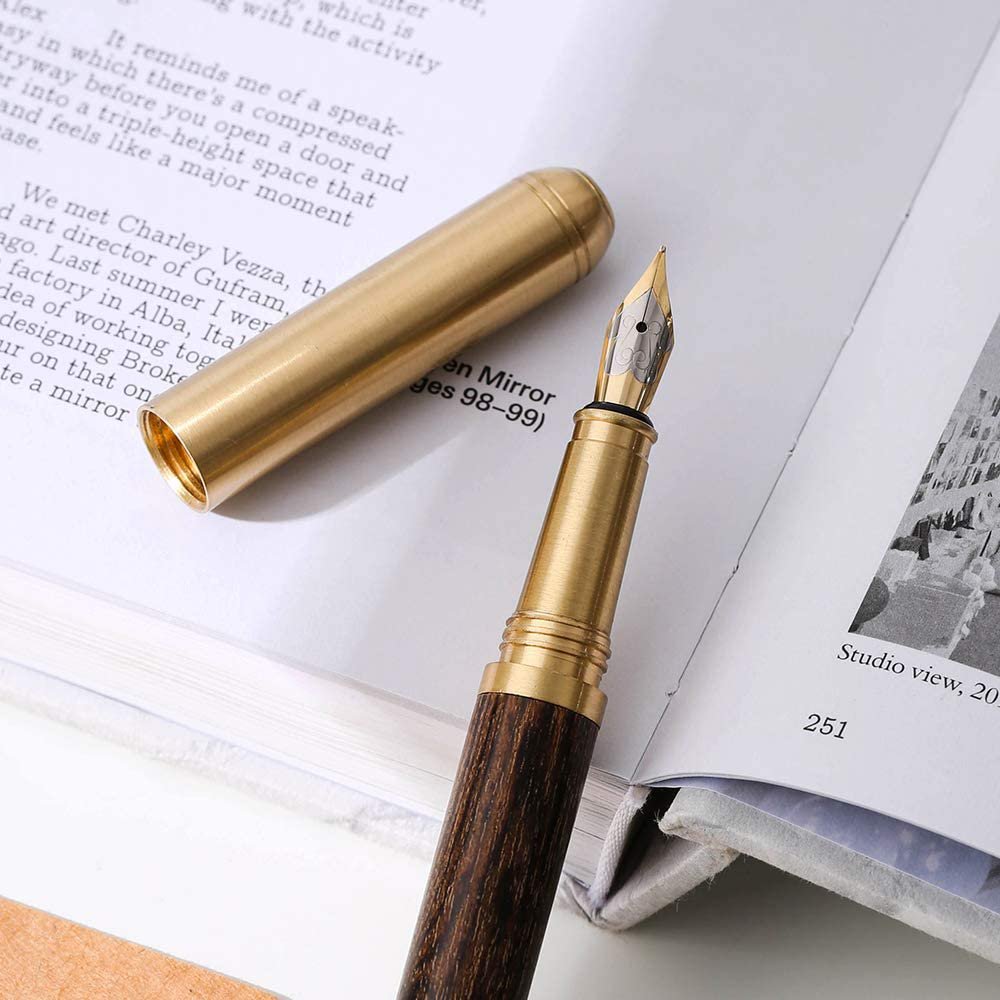
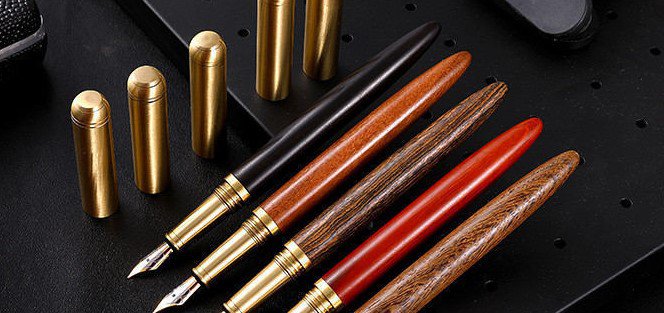
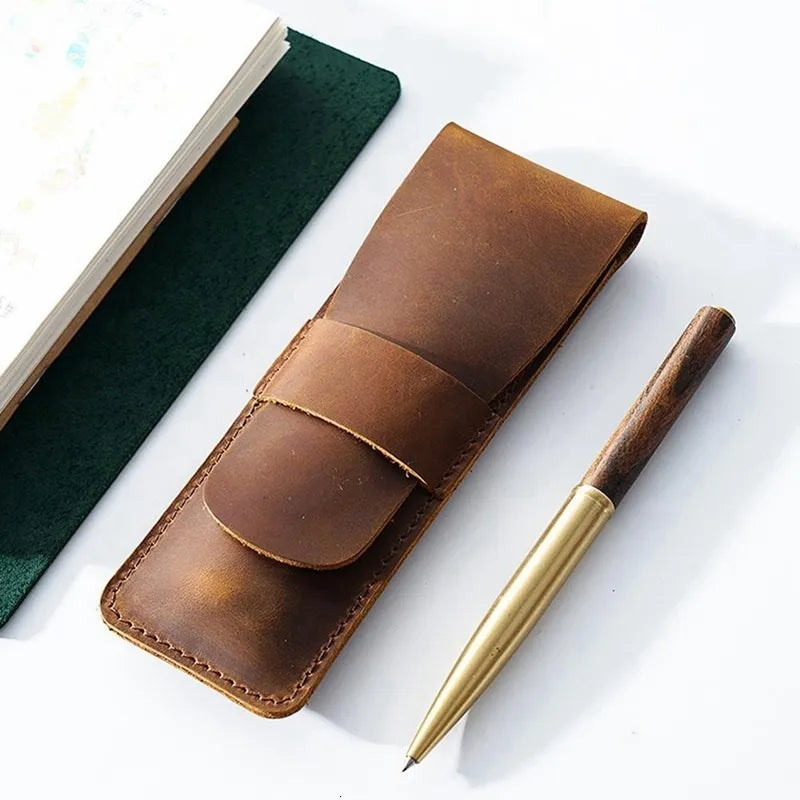
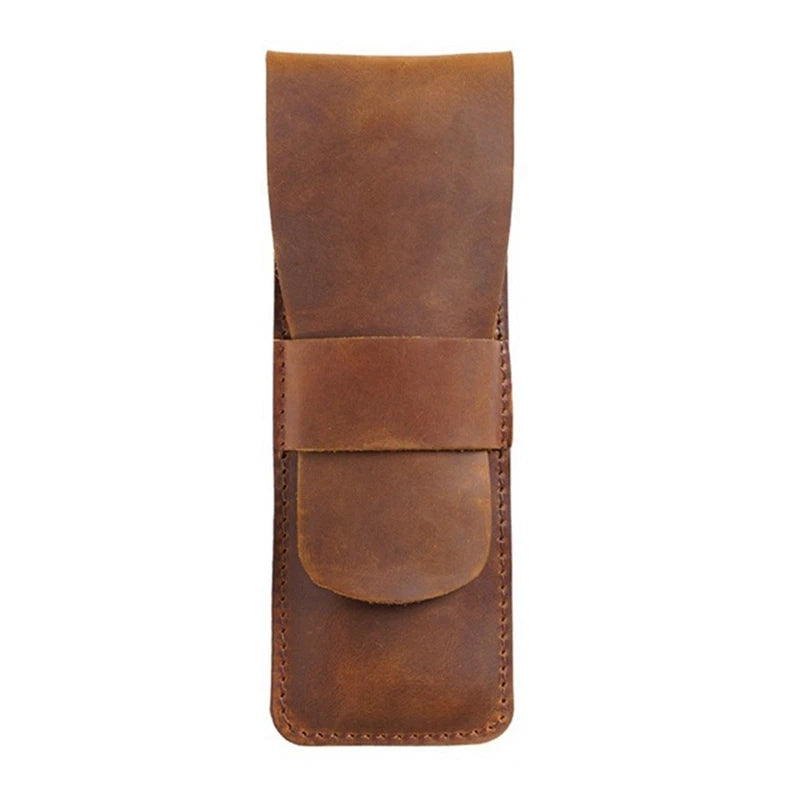
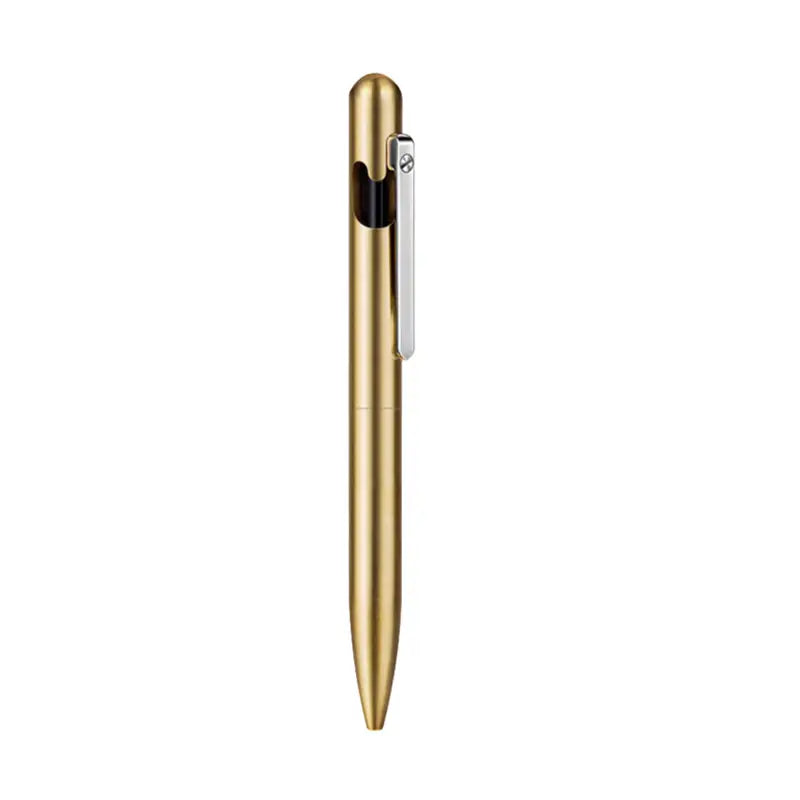
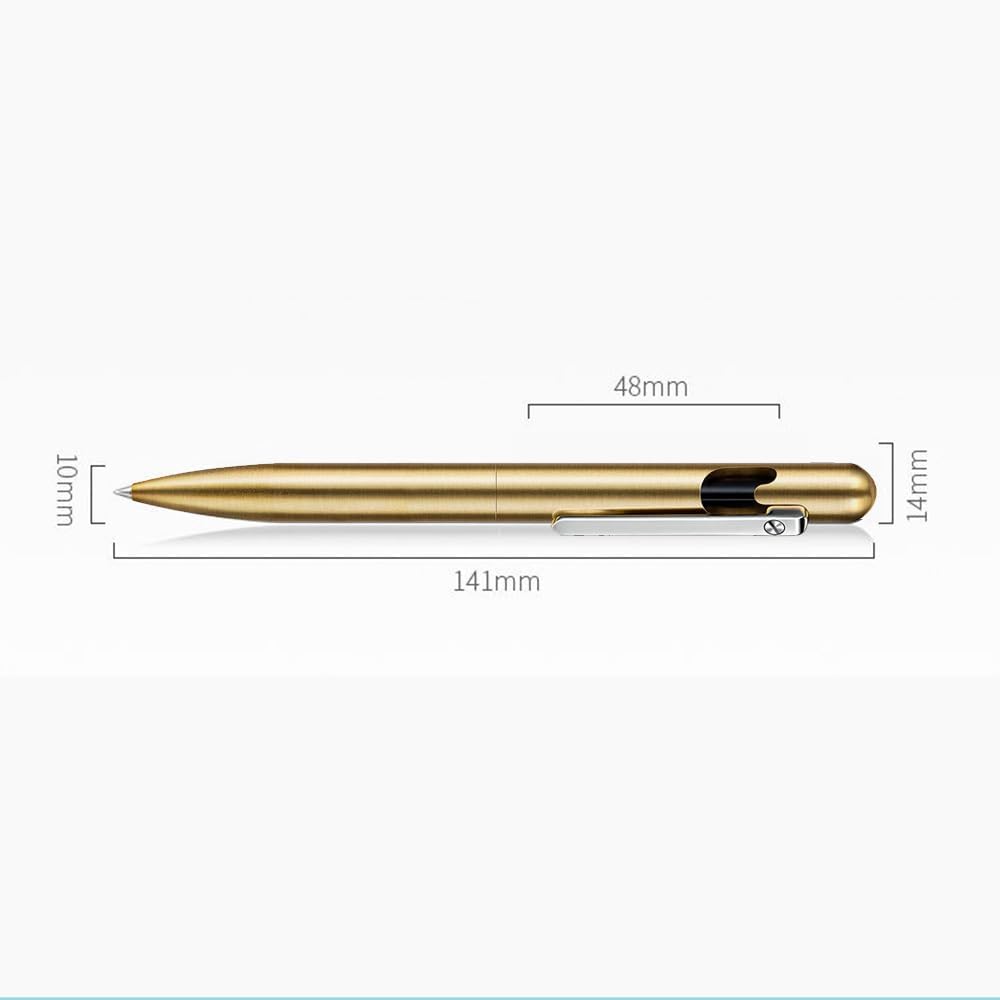
Leave a comment
This site is protected by hCaptcha and the hCaptcha Privacy Policy and Terms of Service apply.